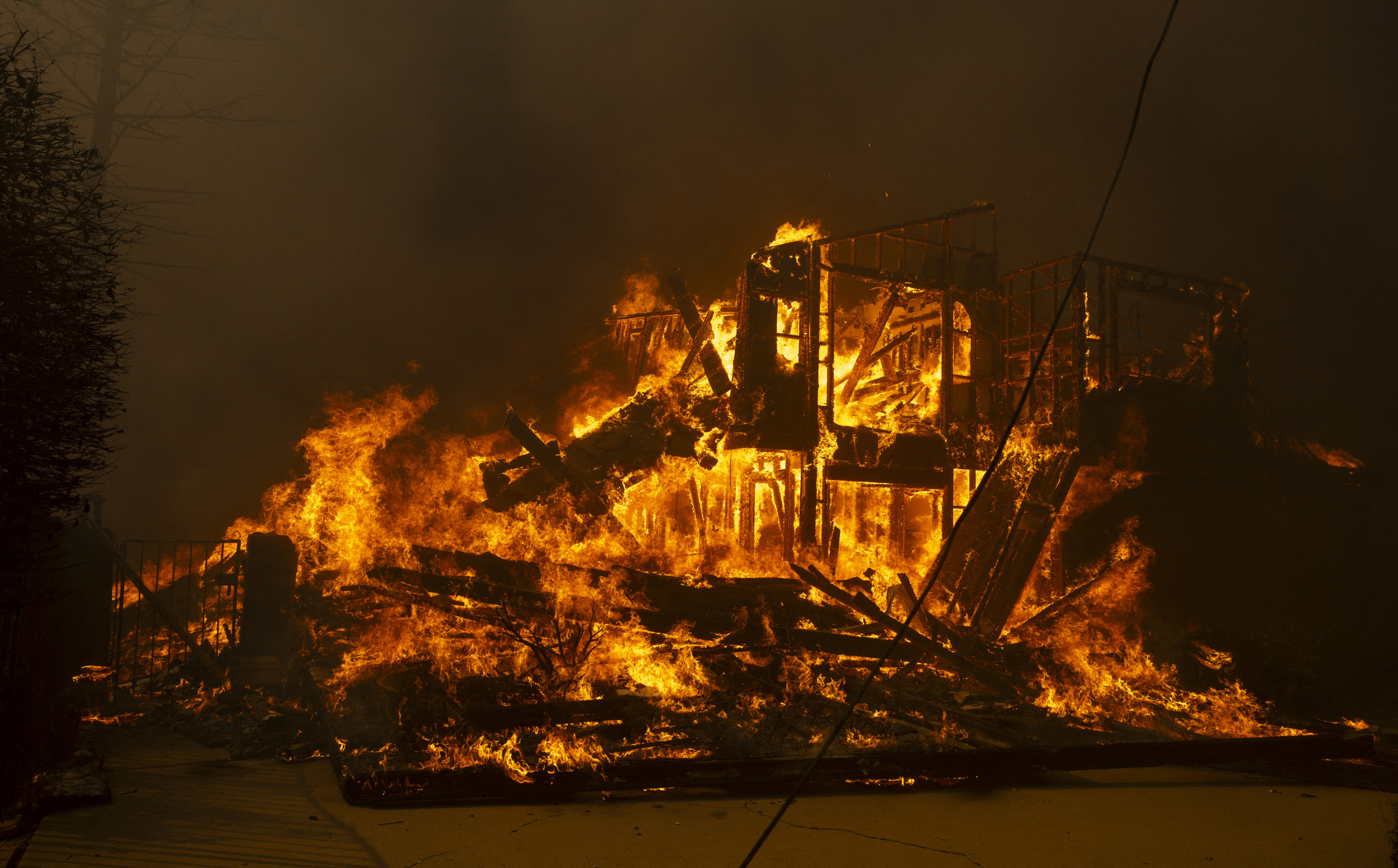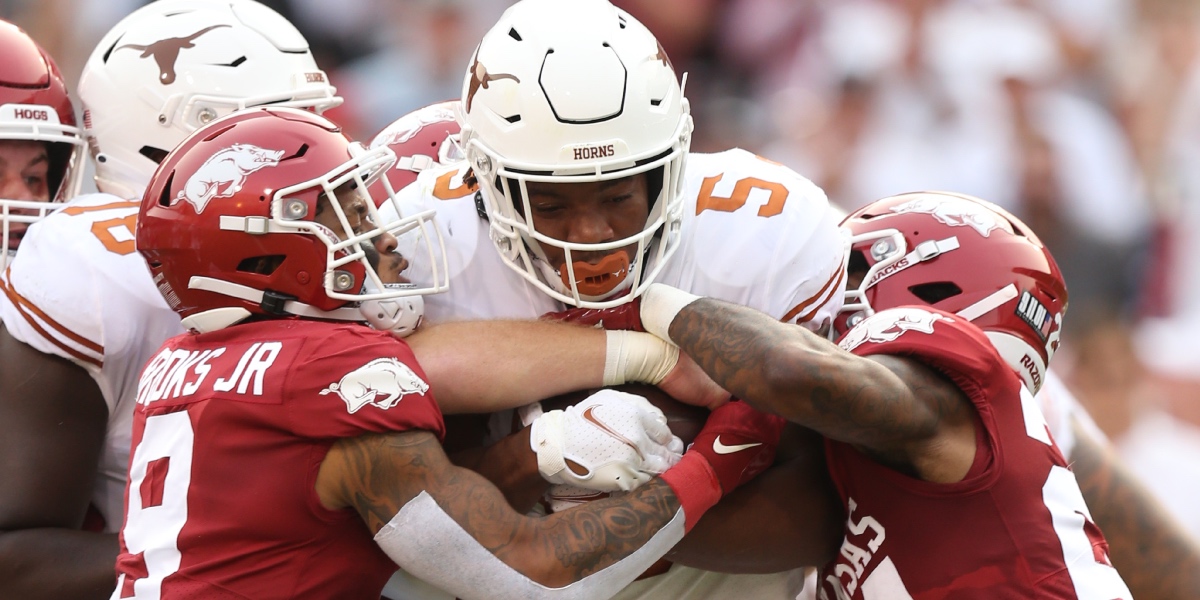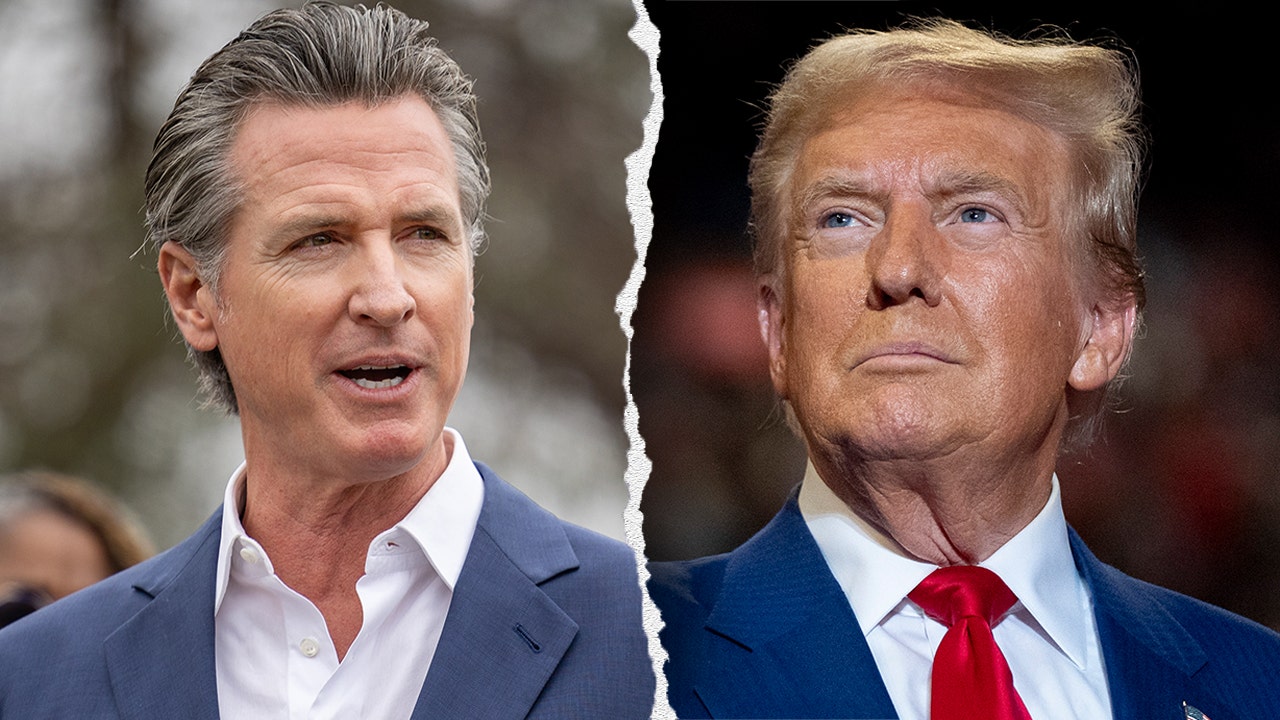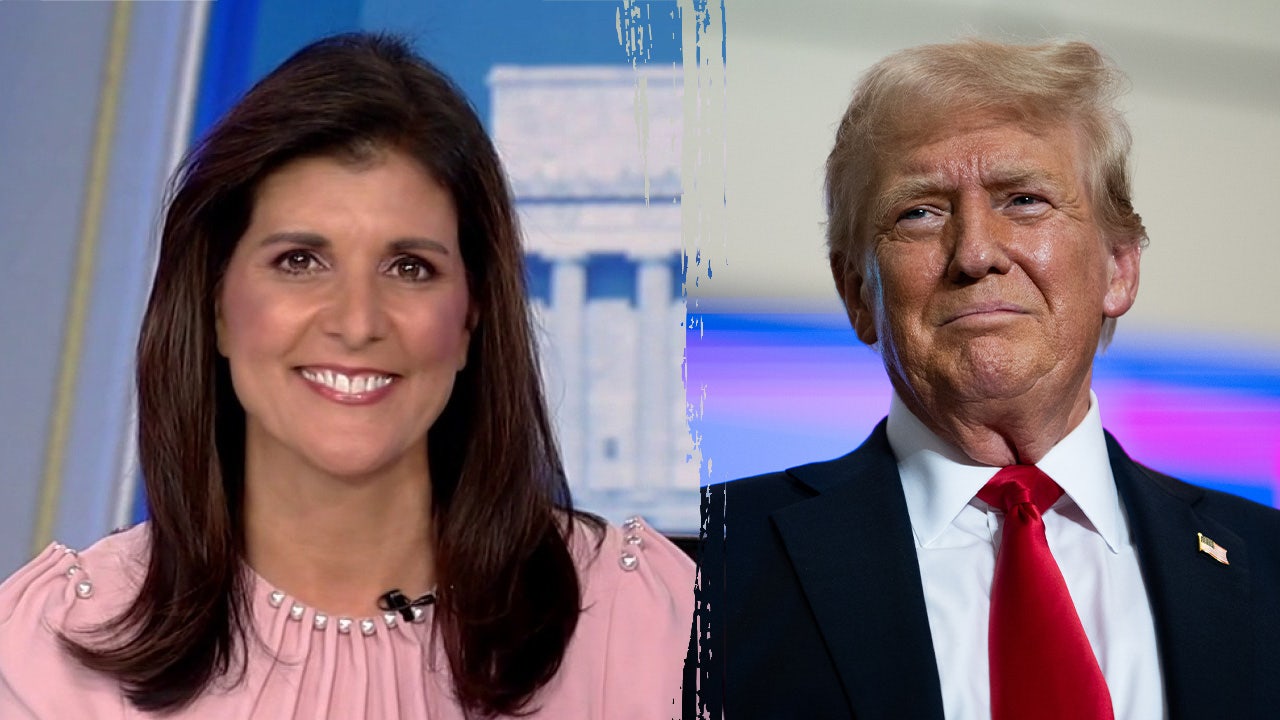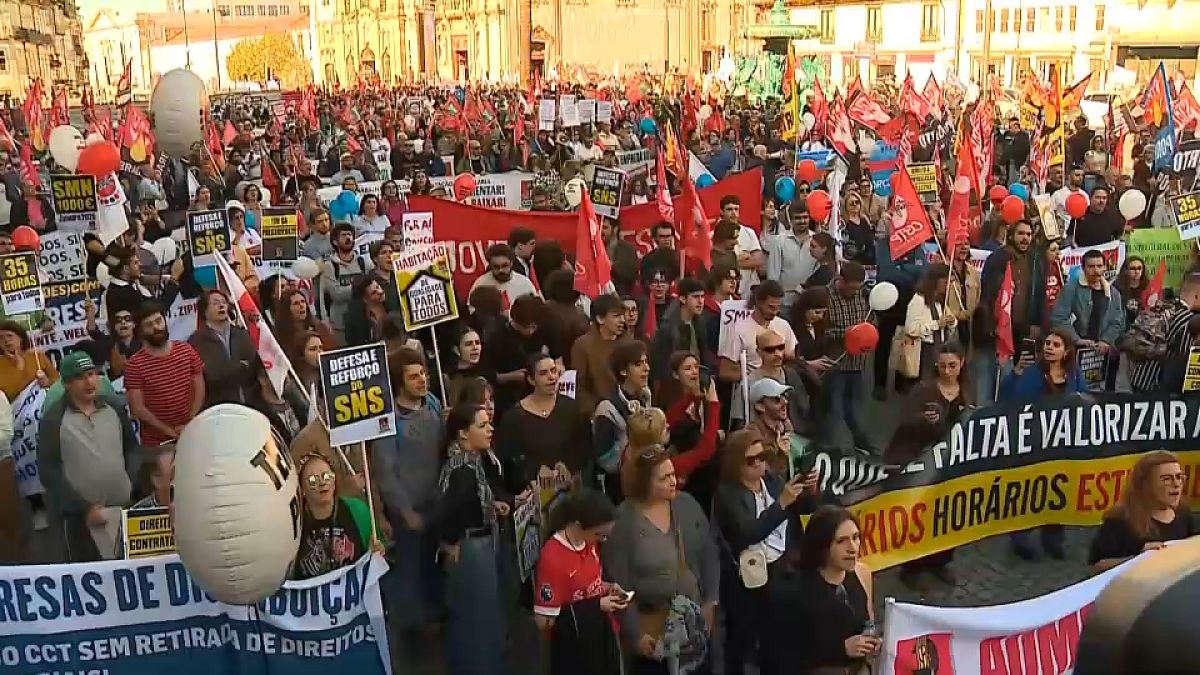World
Argentina reports its first single-digit inflation in 6 months as markets swoon and costs hit home
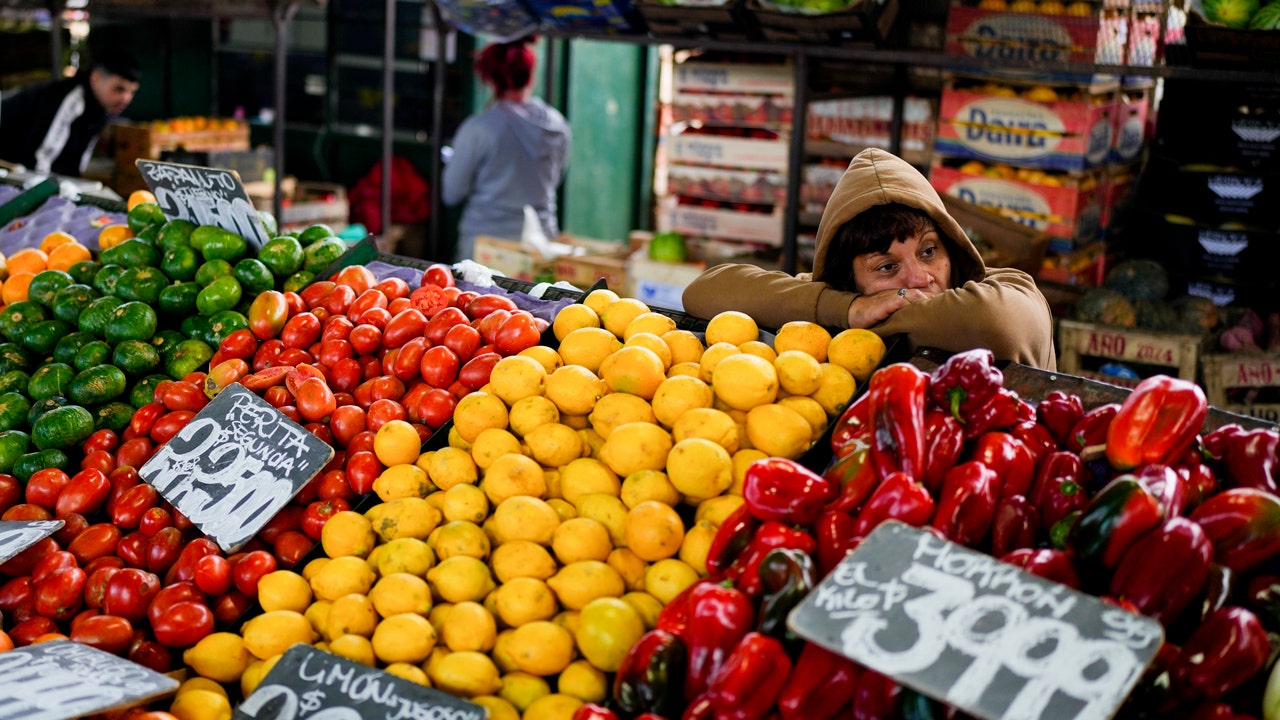
Argentina’s monthly inflation rate eased sharply to a single-digit rate in April for the first time in half a year, data released Tuesday showed, a closely watched indicator that bolsters President Javier Milei’s severe austerity program aimed at fixing the country’s troubled economy.
Prices rose at a rate of 8.8% last month, the Argentine government statistics agency reported, down from a monthly rate of 11% in March and well below a peak of 25% last December, when Milei became president with a mission to combat Argentina’s dizzying inflation, among the highest in the world.
ARGENTINA WILL GET NEXT INSTALLMENT OF BAILOUT AS IMF PRAISES MILEI’S AUSTERITY POLICIES
“Inflation is being pulverized,” Manuel Adorni, the presidential spokesperson, posted on social media platform X after the announcement. “Its death certificate is being signed.”
Although praised by the International Monetary Fund and cheered by market watchers, Milei’s cost-cutting and deregulation campaign has, at least in the short term, squeezed families whose money has plummeted in value while the cost of nearly everything has skyrocketed. Annual inflation, the statistics agency reported Tuesday, climbed slightly to 289.4%.
“People are in pain,” said 23-year-old Augustin Perez, a supermarket worker in the suburbs of Buenos Aires who said his rent had soared by 90% since Milei deregulated the real estate market and his electricity bill had nearly tripled since the government slashed subsidies. “They say things are getting better, but how? I don’t understand.”
A vendor waits for customers at the central market for fruit and vegetables in Buenos Aires, Argentina, Friday, May 10, 2024. (AP Photo/Natacha Pisarenko)
Milei’s social media feed in recent weeks has become a stream of good economic news: Argentine bonds posting some of the best gains among emerging markets, officials celebrating its first quarterly surplus since 2008 and the IMF announcing Monday it would release another $800 million loan — a symbolic vote of confidence in Milei’s overhaul.
“The important thing is to score goals now,” Milei said at an event Tuesday honoring former President Carlos Menem, a divisive figure whose success driving hyperinflation down to single digits through free-market policies Milei repeatedly references. “We are beating inflation.”
Even so, some experts warn that falling inflation isn’t necessarily an economic victory — rather the symptom of a painful recession. The IMF expects Argentina’s gross domestic product to shrink by 2.8% this year.
“You’ve had a massive collapse in private spending, which explains why consumption has dropped dramatically and why inflation is also falling,” said Monica de Bolle, a senior fellow at the Peterson Institute for International Economics who studies emerging markets. “People are worse off than they were before. That leads them to spend less.”
Signs of an economic slowdown are everywhere in Buenos Aires — the lines snaking outside discounted groceries, the empty seats in the city’s typically booming restaurants, the growing strikes and protests.
At an open-air market in the capital’s Liniers neighborhood, Lidia Pacheco makes a beeline for the garbage dump. Several times a week, the 45-year-old mother of four rummages through the pungent pile to salvage the tomatoes with the least mold.
“This place saves me,” Pacheco said. Sky-high prices have forced her to stick to worn-out clothes and shoes and change her diet to the point of giving up yerba mate, Argentina’s ubiquitous national drink brewed from bitter leaves. “Whatever I earn from selling clothes goes to eating,” she said.
Argentina’s retail sales in the first quarter of 2024 fell nearly 20% compared to the year before, a clip comparable to that of the 2020 pandemic lockdowns. The consumption of beef — an Argentine classic — dropped to its lowest level in three decades this quarter, the government reported, prompting panicked editorials about a crisis in Argentina’s national psyche.
“Now I buy pork and chicken instead,” said Leonardo Buono, 51-year-old hospital worker. “It’s an intense shock, this economic adjustment.”
Milei, a self-proclaimed “anarcho-capitalist” and former TV personality, warned his policies would hurt at first.
He campaigned brandishing a chainsaw to symbolize all the cutting he would do to Argentina’s bloated state, a dramatic change from successive left-leaning Peronist governments that ran vast budget deficits financed by printing money.
Promising the pain would pay off, he slashed spending on everything from construction and cultural centers to education and energy subsidies, from soup kitchens and social programs to pensions and public companies. He has also devalued the Argentine peso by 54%, helping close the chasm between the peso’s official and black-market exchange rates but also fueling inflation.
Inflation in the first four months of 2024 surged by 65%, the government statistics agency reported Tuesday. Prices in shops and restaurants have reached levels similar to those in the U.S. and Europe.
But Argentine wages have remained stagnant or declined, with the monthly minimum wage for regulated workers just $264 as of this month, with workers in the informal economy often paid less.
Today that sum can buy scarcely more than a few nice meals at Don Julio, a famous Buenos Aires steakhouse. Nearly 60% of the country’s 46 million people now live in poverty, a 20-year high, according to a study in January by Argentina’s Catholic University.
Even as discontent appears to rise, the president’s approval ratings have remained high, around 50%, according to a survey this month by Argentine consulting firm Circuitos — possibly a result of Milei’s success blaming his predecessors for the crisis.
“It’s not his fault, it’s the Peronists who ruined the country, and Milei is trying to do his best,” said Rainer Silva, a Venezuelan taxi driver who fled his own country’s economic collapse for Argentina five years ago. “He’s like Trump, everyone’s against him.”
Argentina’s powerful trade unions and leftist political parties have pushed back against Milei with weekly street protests, but haven’t managed to galvanize a broad swath of society.
That could change — last week, a massive protest against budget cuts to public universities visibly hit a nerve, drawing hundreds of thousands of people.
“The current situation is completely unsustainable,” said de Bolle, the economy expert.

World
Judge to Decide Whether Trump's Hush Money Conviction Can Stand
World
CAUGHT ON CAMERA: Turkish leaders brawl at council meeting over the cost of Republic Day
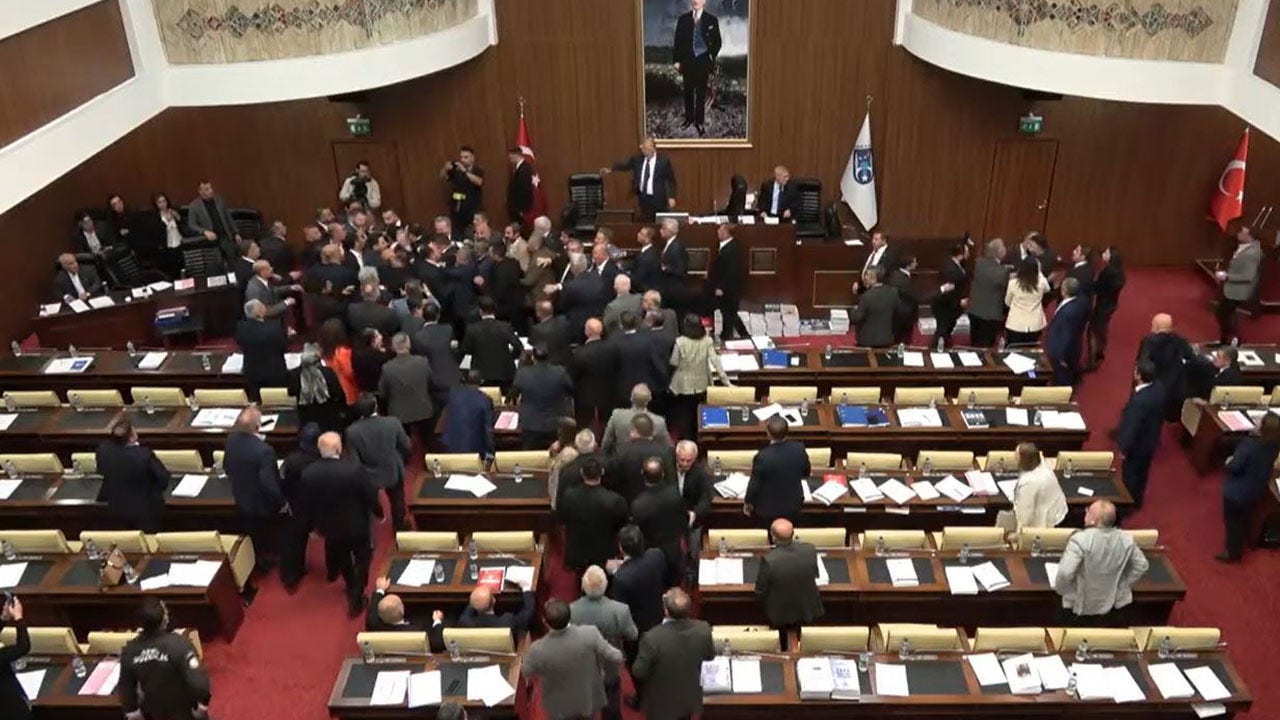
A meeting among Turkish officials erupted into a brawl as tensions flared amid disagreements over the cost of celebrations to honor the creation of the country, during a period of economic hardship.
The Ankara Metropolitan Municipality Council allocated 69 million Turkish lira, the equivalent of $2 million, for a concert featuring singer Ebru Gündeş during the October 29 Republic Day celebration, according to media reports.
EXPLOSION AT TURKISH AEROSPACE FACILITY RULED A TERROR ATTACK
Turkish politicians got into a brawl during a meeting over the costs of Republic Day celebrations. (“Ankara Büyükşehir Belediyesi”)
Another 71 million lira were set aside for a performance by the rock band Mor ve Ötesi, which fueled questions by critics.
Lawmakers exchanged heated words, with some arguing that others were out of touch with ordinary citizens, Newsweek reported.
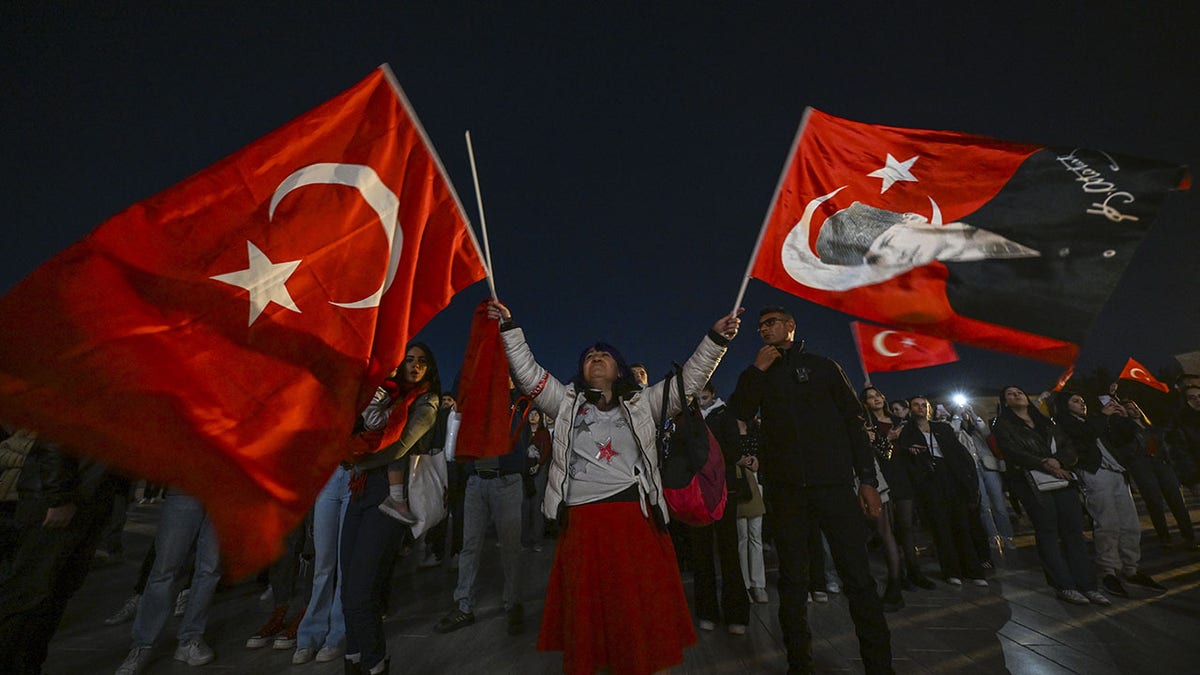
People visit Anitkabir, the mausoleum of the Turkish Republic’s Founder Mustafa Kemal Ataturk, during the celebrations of the 101st Anniversary of the Turkish Republic Day in the evening hours in Ankara, Turkiye, on Oct. 29. (Getty Images)
Video footage of the meeting shows lawmakers grabbing and shoving each other after the meeting had been adjourned.
There were no reports of injuries or arrests.
World
Indian soldiers engaged in deadly gun battles with Kashmir rebels

One rebel killed as two separate gunfights under way amid increase in armed attacks in the Indian-administered Kashmir.
A suspected rebel has been killed in a gunfight with security forces in the Indian-administered Kashmir, the army said, days after rebels killed two members of a government-backed militia.
“One terrorist has been neutralised by the security forces [in Zabarwan forest near Srinagar city],” the Indian army’s Chinar Corps said on Sunday.
Security forces were engaged in two separate gun battles – one in the Chaas area of Kishtwar district in the southern Jammu region and the other one in Baramulla district north of Srinagar, the capital of the disputed Kashmir region, according to Indian media reports.
The gun battles come days after rebels killed two members of a government-run militia, called the Village Defense Group, in Kishtwar on Thursday. The Kashmir Tigers armed group claimed responsibility for the killings in a statement on social media.
Separatists have been demanding either independence or to merge with Pakistan. Many Muslim Kashmiris also support the goals of the rebels. Tens of thousands of civilians, rebels and government forces have been killed as India deployed more than 500,000 soldiers to quell the rebellion.
New Delhi has often blamed Pakistan for supplying the rebels with weapons and helping them launch attacks, which Islamabad denies.
Both India and Pakistan claim Kashmir in its entirety but govern only part of it. They have fought two wars over the Himalayan territory, which has witnessed decades-long armed rebellion against Indian rule.
Increased attacks
Since October, rebel groups and Indian forces have exchanged fire, including an attack on an army convoy and firing on a construction camp, in which seven people were killed.
Last week, a rebel hurled a grenade at a busy market in the central city of Srinagar, wounding 12 people.
On Friday, the Indian military said a team of soldiers and police raided a village near northwestern Sopore town following a tip about the presence of armed rebels.
The military said in a statement that rebels “fired indiscriminately” at the troops, which led to a gun battle, killing two fighters. Earlier, officials said two members of the Village Defence Group were killed by rebels in the southern Kishtwar area late on Thursday.
Jammu and Kashmir Chief Minister Omar Abdullah condemned the attack on X, saying, “I expect the security forces to move quickly to plug any gaps in our counter-terror grid & ensure that attacks like this stop completely.”
On Wednesday, Kashmir’s newly elected regional assembly passed a resolution demanding that New Delhi restore its partial autonomy, which was stripped by Prime Minister Narendra Modi’s government in 2019.
New Delhi stripped Kashmir of its special status in a sudden decision which was accompanied by mass arrests and a months-long communications blackout.
The Indian government slammed the resolution. “No power in the world can restore Article 370 [of the Constitution, pertaining to partial autonomy] in Kashmir,” Modi said on Wednesday.
-
Business1 week ago
Carol Lombardini, studio negotiator during Hollywood strikes, to step down
-

 Health1 week ago
Health1 week agoJust Walking Can Help You Lose Weight: Try These Simple Fat-Burning Tips!
-
Business1 week ago
Hall of Fame won't get Freddie Freeman's grand slam ball, but Dodgers donate World Series memorabilia
-

 Culture1 week ago
Culture1 week agoYankees’ Gerrit Cole opts out of contract, per source: How New York could prevent him from testing free agency
-

 Culture6 days ago
Culture6 days agoTry This Quiz on Books That Were Made Into Great Space Movies
-
/cdn.vox-cdn.com/uploads/chorus_asset/file/25299201/STK453_PRIVACY_B_CVirginia.jpg)
/cdn.vox-cdn.com/uploads/chorus_asset/file/25299201/STK453_PRIVACY_B_CVirginia.jpg) Technology1 week ago
Technology1 week agoAn Okta login bug bypassed checking passwords on some long usernames
-

 Health3 days ago
Health3 days agoLose Weight Without the Gym? Try These Easy Lifestyle Hacks
-

 Culture2 days ago
Culture2 days agoThe NFL is heading to Germany – and the country has fallen for American football


